
Complete number sentences Multiplication by
A number sentence is an arrangement of numbers and mathematical operation symbols. They are a common way of formatting math questions throughout the elementary school years. Children are taught how to solve these problems as well as how to write these types of math statements in class. Number sentences can be written in a variety of ways to.
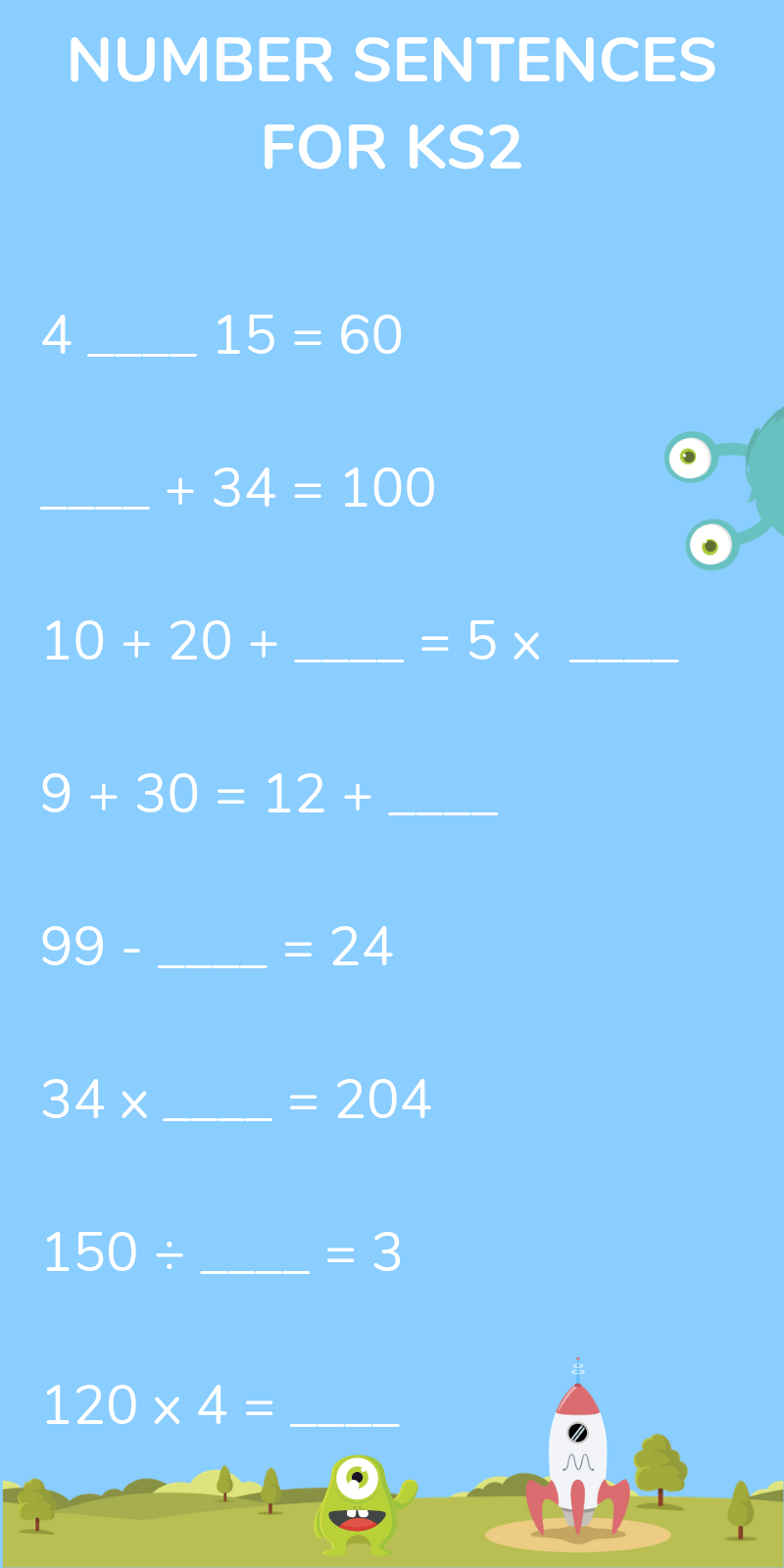
What Is A Number Sentence Explained For Primary Parents And Kids!
A number sentence is a mathematical statement made up of two expressions and a relational symbol (=, >, <, etc). An equation is a number sentence whose relational symbol is the equal sign. An inequality is a number sentence whose relational symbol is anything else. Emphasizing the connection between equations and inequalities supports sense making.

Grade 4Number Sentence YouTube
Open number sentence is an expression that contain variables and result of which either become true or false depending on the value of the variable. Let's take an example to understand the concept of Open number sentence. A + B = 5 the expression can be true or false that depend on the value of A and B if the value of A=2 and B=3 then the.

Number Sentences interactive worksheet
Number Sentence: A number sentence is a mathematical statement that can comprise numbers, arithmetic operations (like addition, subtraction, multiplication, division), and relational symbols (such as =, >, <). It represents a complete thought, much like a sentence in the English language. For instance, "12 + 5 = 17" is a number sentence.

Strategy Write a Number Sentence The Curriculum Corner 123
A number sentence is an equation or inequality which uses numbers and symbols to represent a problem. It can include any combination of the 4 main operations and incorporates an equals sign (=). 2 + 3 = 5 is an example of a simple number sentence. 15 (6 -4) + 3/5 = X, is a complex number sentence.

Number Sentence AyannahasPotts
Writing Tips: Starting a Sentence with a Number. Most people write numbers up to ten as words (e.g., one, two, three) and larger numbers as numerals (e.g., 98, 204). However, there are also special rules for starting a sentence with a number. In this post, then, we will look at how to write numbers at the start of a sentence.
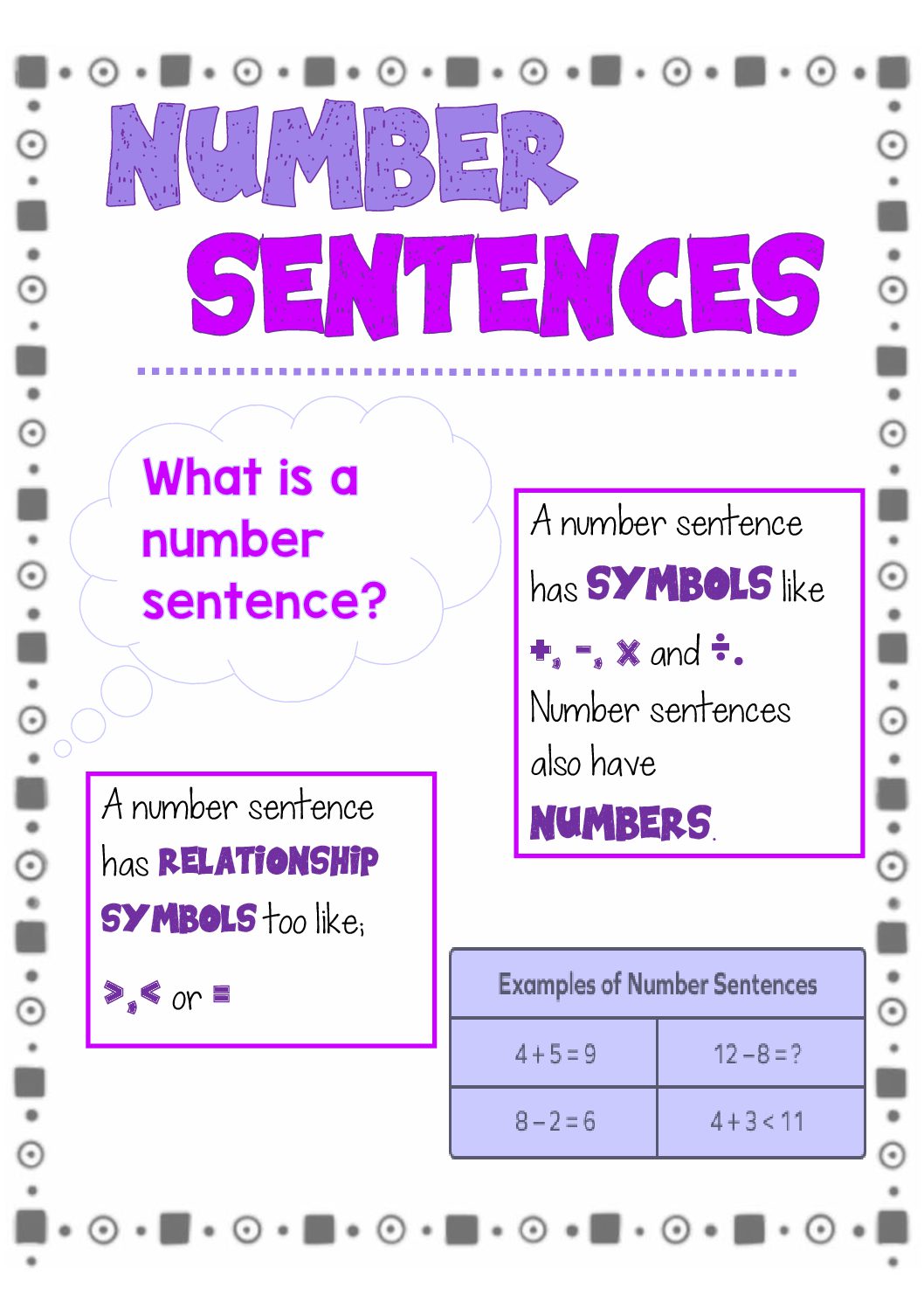
Anchor Chart Number Sentences • Teacha!
In mathematics education, a number sentence is an equation or inequality expressed using numbers and mathematical symbols. The term is used in primary level mathematics teaching in the US, [1] Canada, UK, [2] Australia, New Zealand [3] and South Africa. [4] Usage[edit] The term is used as means of asking students to write down equations using.
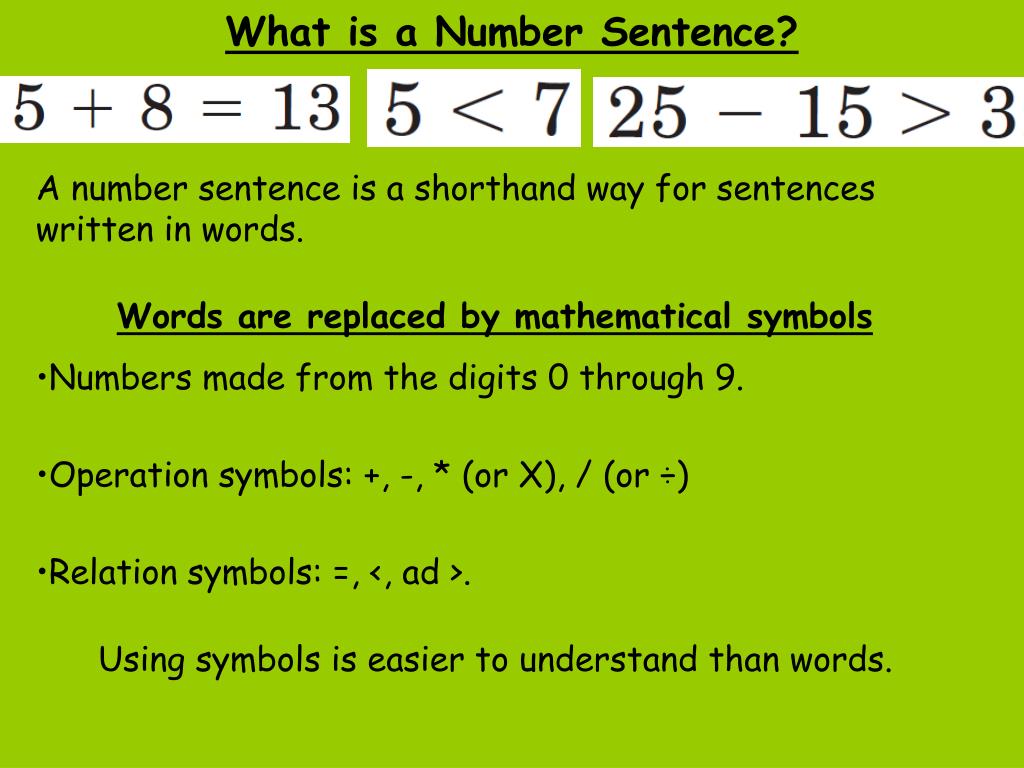
PPT 3.9 True or False Number Sentences PowerPoint Presentation, free download ID2915260
For example: Determine if the following number sentences are true or false. 7 = 7. 7 = 8 - 1. 5 + 2 = 2 + 5. 4 + 1 = 5 + 2. Benchmark: 1.2.2.3 Missing Numbers. Use number sense and models of addition and subtraction, such as objects and number lines, to identify the missing number in an equation such as: 2 + 4 = .

Number Sense Number Sentences (1 More Than/1 Less Than) EdBoost
A number sentence is an arrangement of numbers and symbols. Also referred to as a "sum" or "problem," number sentences are a common way of formatting questions in K-5 math. It's crucial that children learn this early, as it is how the majority of the work in their math lessons will look.

Writing Number Sentences to Solve Problems LOTS of word problems to help students practice
A true number sentence is one where the written sentence is correct and is balanced on both sides. This is usually shown by using an equal sign to show that one side of the equation is equal to the other side of the equation. Examples of number sentences that are true include the following: 1 + 1 = 2; 10 × 5 = 50; 22 - 7 = 15; 27 ÷ 9 = 3; 6.
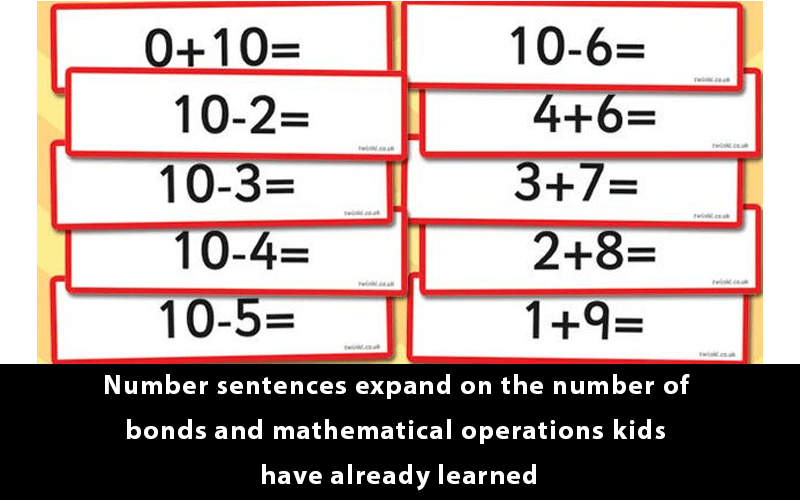
What is a Number sentence? Definition & Examples
What is a number sentence? A number sentence is a combination of numbers and mathematical operations that children are often required to solve. Examples of number sentences include: 32 + 57 = ? 5 x 6 = 10 x ? 103 + ? = 350 They will usually be composed of addition, subtraction, multiplication or division - or a combination of all four!
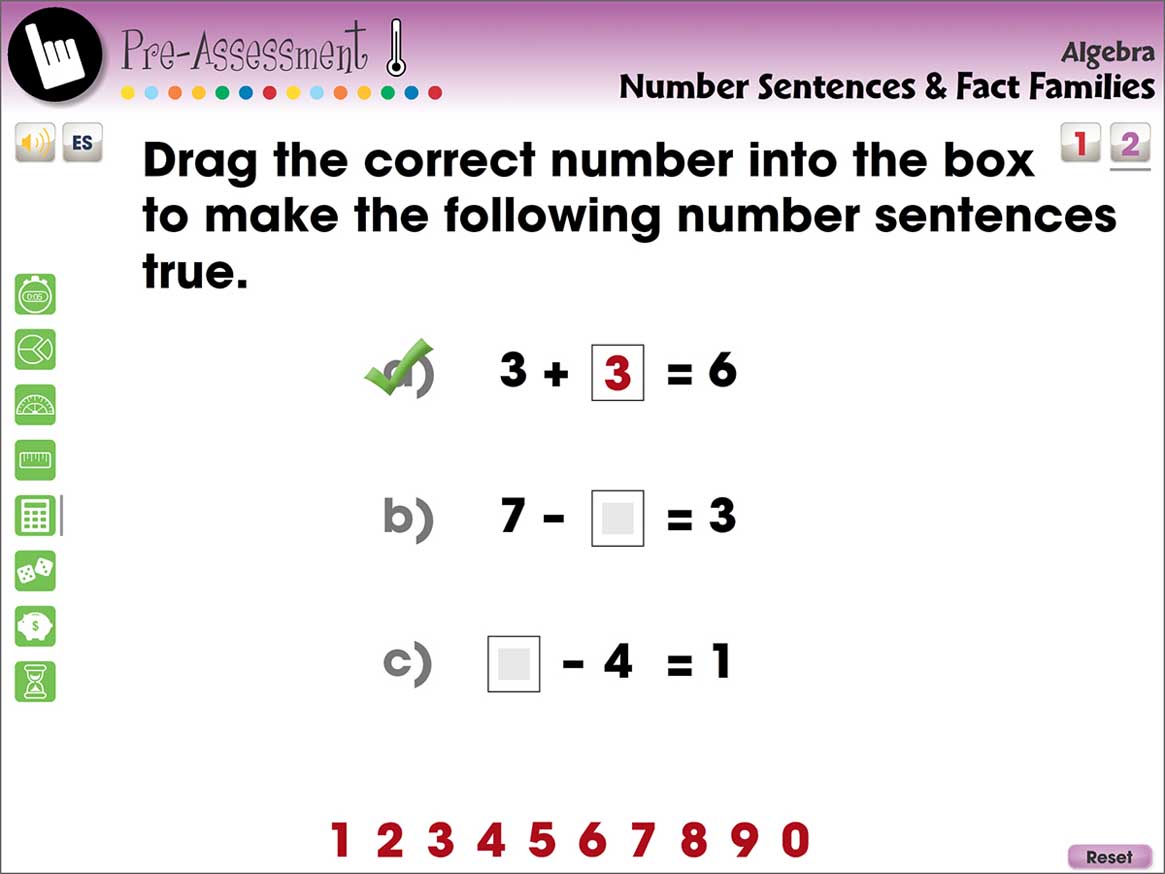
Algebra Number Sentences & Fact Families PreAssessment & Teach the Skill PK2 Grades PK
What is a number sentence? A number sentence is a combination of numbers and mathematical operations that children are often required to solve. Example of a number sentences include: 32 + 57 = ? 5 x 6 = 10 x ? 103 + ? = 350 They will usually comprise of addition, subtraction, multiplication or division - or a combination of all four!

Strategy Write a Number Sentence The Curriculum Corner 123
A number sentence is a "mathematical sentence" used to express various mathematical relationships, namely equality and inequality. Number sentences are made up of: Numerals Operations (addition, subtraction, multiplication, division, etc.) Equality / inequality symbols Below are some examples of number sentences. Examples
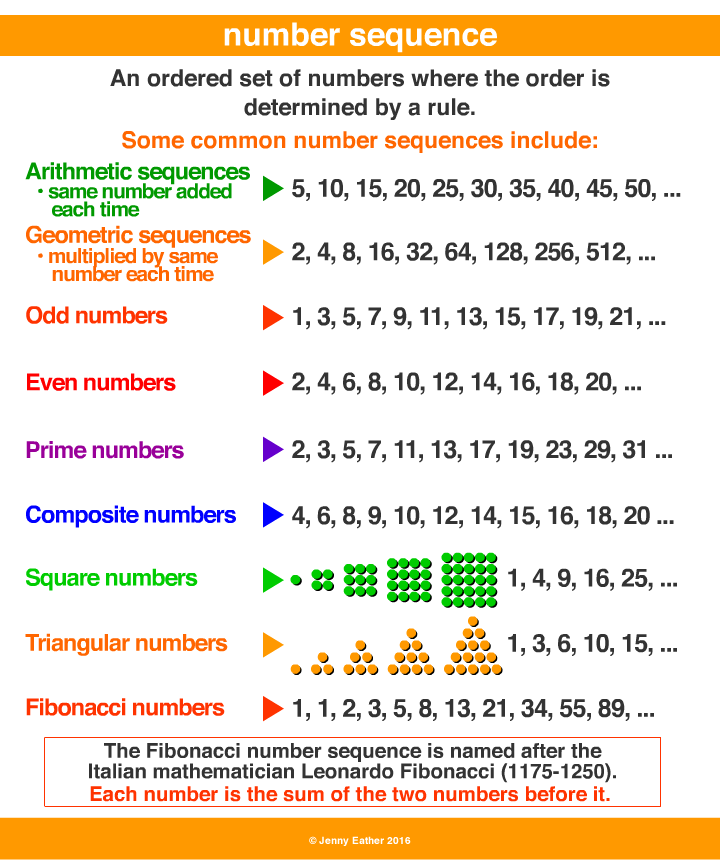
number sequence A Maths Dictionary for Kids Quick Reference by Jenny Eather
So, number sentences are basically mathematical sentences comprising numbers and mathematical symbols. Let us take a couple of examples to make the concept clear. 5 + 5 = 10. Or. 10 + 10 = 20. Here, numbers like 5, 10, and 20 are used in combination with signs like + and = to make a complete sense. If we try to explain this in plain English, we.

Number Sentence to match story Sentences, Teaching, Educational resources
Learn how to use number sentences to solve a word problem.We hope you are enjoying this video! For more in-depth learning, check out Miacademy.co (https://ww.

Number Sentences Positively Learning
A number sentence is an arrangement of numbers and symbols, such as the following: 6 + 7 = 13. 45 - 6 = 39. 8 x 9 = 72. 48 ÷ 8 = 6. There was a time when teachers would refer to the word 'sum' when using any of the above, but this is confusing for children, as the word 'sum' is a term that should only be used when talking about addition.